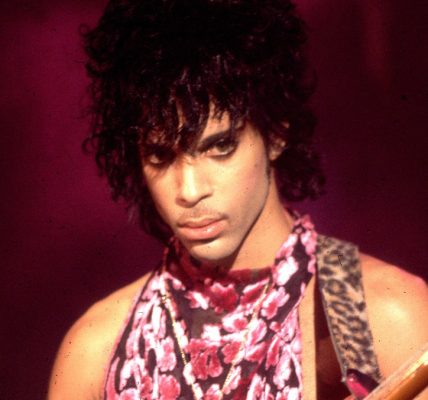Austria’s classically trained countertenor, JJ, has made history as the winner of the 2025 Eurovision Song Contest with his captivating performance of “Wasted Love.” This remarkable song masterfully blends operatic vocals with a modern techno twist, showcasing JJ’s extraordinary multi-octave range. Competing against 25 other talented artists, JJ triumphed during the grand final held in the picturesque Swiss city of Basel on May 17.
The competition was electrifying, with Israel’s Yuval Raphael securing a commendable second place in a vibrant celebration of music and unity. However, the event’s atmosphere was tinged with tension due to the ongoing Gaza war, which sparked debates over Israel’s involvement in the contest, creating a complex backdrop for the festivities.
JJ, whose complete name is Johannes Pietsch, marks a significant milestone as Austria’s first Eurovision winner since the iconic Conchita Wurst in 2014. JJ, a performer at the prestigious Vienna State Opera, has openly expressed admiration for Wurst, whom he considers a mentor. This victory marks Austria’s third overall win in the Eurovision history, solidifying its position in the music competition’s legacy.
“I am overwhelmed and ecstatic beyond my wildest dreams. This experience is truly surreal,” exclaimed JJ as he proudly accepted the iconic microphone-shaped glass Eurovision trophy, a symbol of his hard-fought victory.
The grand final was nail-biting, as Raphael garnered significant public support for her powerful anthem “New Day Will Rise.” However, her performance was not without controversy, as pro-Palestinian demonstrators vocally protested Israel’s participation, calling for the country to be withdrawn from the contest due to its military actions against Hamas in Gaza.
Claiming the third spot was Estonia’s Tommy Cash with his catchy entry “Espresso Macchiato,” while Sweden’s KAJ, initially favored to win with their upbeat sauna tribute “Bara Bada Bastu,” finished fourth in a highly competitive lineup.
The Eurovision Song Contest, known as the world’s largest live music event, culminated in a dazzling grand finale in Basel, Switzerland. The event showcased a variety of musical styles, including high-energy electropop, quirky rock, and dazzling performances by extravagant divas.
Competitors from 26 countries, selected from an initial pool of 37 entrants through two elimination semifinals, performed for an audience of approximately 160 million viewers. Each act was given three minutes to captivate the audience, utilizing an array of visual effects such as smoke machines, pyrotechnics, and elaborate light shows to make a lasting impression on both the public and the national juries.
The show was a vibrant celebration of Europe’s diverse and sometimes perplexing musical tastes. The Lithuanian band Katarsis delivered a compelling grunge rock performance, while Ukraine’s Ziferblat showcased their unique take on progressive rock. The British group Remember Monday contributed to the eclectic mix with their catchy country pop sound.
Italy’s Lucio Corsi brought a nostalgic flair reminiscent of 1970s glam rock, whereas the Icelandic duo VAEB entertained with their humorous take on rowing. Latvia’s all-female ensemble Tautumeitas mesmerized the audience with their beautiful, intertwined harmonies, highlighting the rich tapestry of talent present at the contest.
The stage was graced by several iconic divas, including Spain’s Melody and Poland’s Justyna Steczkowska, who made a triumphant return to Eurovision after a three-decade hiatus with the song “GAJA.” Malta’s flamboyant Miriana Conte delivered a provocative performance of her song “Serving,” which had undergone title and lyric alterations mandated by contest organizers, all set against a backdrop featuring a glitter ball and oversized lips.
According to Dean Vuletic, a renowned expert on Eurovision history, the competition has evolved significantly, demonstrating increased diversity in both musical styles and languages. This year alone, there were entries performed in 20 different languages, including Ukrainian, Icelandic, Albanian, Latvian, and Maltese.
Vuletic noted that in the past, Eurovision entries often featured catchy, non-offensive pop songs primarily in English. However, he observed that the traditional formula has become less effective in recent years, with audiences seeking more originality and emotional authenticity in their musical choices.
“Today, an entry must be both memorable and genuine to resonate with audiences,” Vuletic emphasized, highlighting the shift in what it takes to succeed at Eurovision.
The contest faced renewed scrutiny this year as disputes regarding Israel’s participation continued. A number of former participants, including Switzerland’s Nemo, have actively called for the exclusion of Israel, while several of the broadcasters that support Eurovision sought to reassess the country’s involvement in the event.
Both pro-Palestinian and pro-Israel demonstrations were present in Basel, though they were smaller in scale compared to the previous year’s event in Sweden, where tensions escalated backstage, resulting in the expulsion of Dutch competitor Joost Klein following an alleged confrontation with a crew member.
Before the competition, hundreds of protestors marched through Basel, brandishing Palestinian flags and chanting for a boycott of Israel, reflecting the ongoing conflicts and sentiments surrounding the situation.
In contrast, a group of supporters for Israel gathered in a square near the cathedral in Basel, passionately cheering for Raphael and making a statement about the need for Jewish visibility in public spaces in Switzerland, as expressed by Zurich resident Rebecca Laes-Kushner.
Laes-Kushner stated, “If Raphael wins, it would send a powerful message against antisemitism.”
“This event is meant to celebrate music, not to promote hatred,” she added, emphasizing the importance of keeping the focus on the art rather than the politics involved.
The European Broadcasting Union (EBU), the organization that oversees Eurovision, has taken steps to strengthen the contest’s code of conduct this year, urging participants to uphold values of universality, diversity, equality, and inclusivity, while maintaining a stance of political neutrality.
After a contentious decision in 2024 to prohibit all flags except national ones from being displayed in the arena, this year, audience members were permitted to bring Palestinian flags and other banners, provided they comply with Swiss law. However, performers are still restricted to waving only their national flags.
Eurovision director Martin Green commented on the situation, stating that the organizers aimed to “foster a renewed sense of unity, peace, and togetherness during these challenging times.”
“All 37 delegations have conducted themselves admirably during these difficult circumstances,” he concluded, highlighting the commitment to maintaining a celebratory and respectful atmosphere throughout the competition.

Here you can find the original article; the photos and images used in our article also come from this source. We are not their authors; they have been used solely for informational purposes with proper attribution to their original source.





